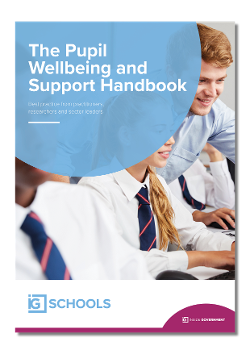We know that High Quality Teaching, day in, day out, in every lesson, is what makes the greatest difference to outcomes for all pupils.
But what does ‘High Quality Teaching’ mean? And why does making HQT as inclusive as possible mean that ALL pupils will benefit? Here, Alex Grady, Head of Whole School SEND at nasen, explores these points and more.
The ITT Core Content Framework, the Early Career Framework and the Ofsted Inspection Framework all emphasise the importance of understanding and using cognitive science in High Quality Teaching, such as the concepts of cognitive load, working memory and dual coding. Central, too, is building on prior learning, revision and repetition (over-learning) and the judicious use of specific praise; these documents also emphasise the centrality of building positive relationships with our pupils and their families and establishing clear routines for behaviours. If we consider pupils with SEND, it is highly likely that they will have particular needs in some or all of these areas i.e. working memory, retention, social and emotional wellbeing, structure and routine – when teachers and support staff use strategies and approaches which effectively meet the needs of pupils with SEND, they will also be meeting the individual needs of all pupils, each one of whom has a unique profile, thereby improving the quality of teaching and learning for everyone. These approaches are also likely to make classroom management more positive and effective for everyone, and potentially reduce exclusions, which will be of benefit to all pupils, especially those with SEND, whose rates of exclusion are 5-6 times higher than for pupils with no SEND.
Whole School SEND can help support you to develop the skills and knowledge of your staff in relation to pupils with SEND, and thereby all pupils, in a range of ways. We provide free-to-access, DfE-funded and approved resources and professional development for teachers and support staff at all stages of their careers, as well as for SENCOs and other school leaders, including: our suite of self-evaluation ‘SEND Review Guides’, condition-specific videos (on dyslexia, SEMH, physical disabilities etc), handbooks and guidance documents (including on autism and developmental language disorder), live webinars on wide range of topics, webinar recordings and more. Take a look on the SEND Gateway to find out more about WSS, sign up to receive our e-newsletter, learn about our regional teams and how you can get involved, and start benefiting from what Whole School SEND can offer.
Access more best practice and expert insights in our Pupil Wellbeing and Support Handbook - available to download now.
